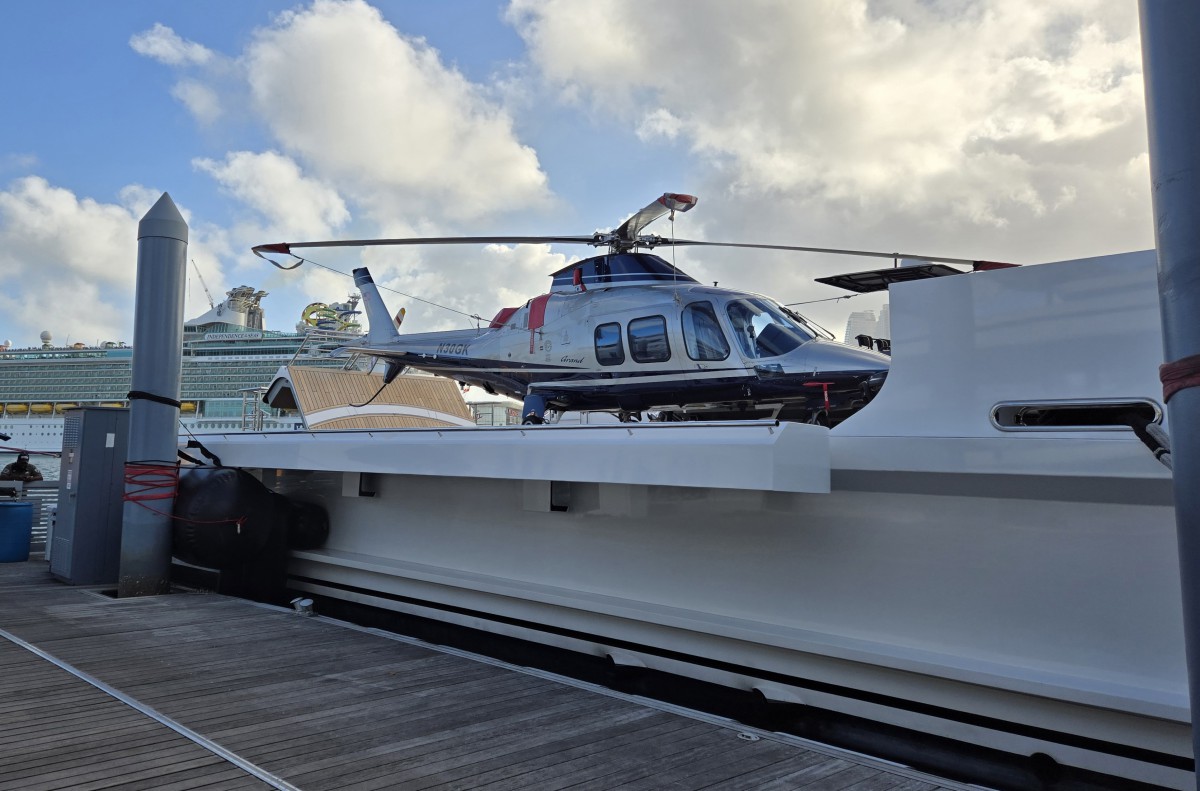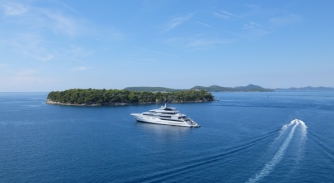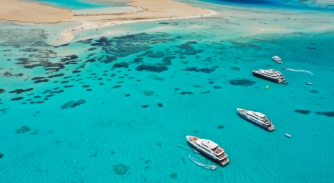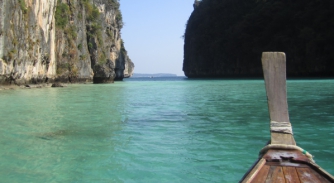A double standard in maritime and aviation regulation
Felix Christians highlights a growing regulatory disconnect in maritime aviation that he feels deserves serious attention…

Heli ops on board motoryacht BOLD at The Miami International Boat Show earlier this year
Helicopter operations on charter yachts or tourism vessels are being treated under aviation cabotage laws, resulting in denied operating permits or the need for an 83 bis-style partnership. This approach is outdated and inappropriate for the realities of modern vessel-based aviation.
The problem with Article 83 bis agreements
An Article 83 bis partnership requires an aircraft to be co-registered in the country where it operates and is a system designed for longer-term, land-based operations. However, charter yachts and tourism vessels frequently move between jurisdictions. Re-registering a helicopter multiple times per year is not only administratively burdensome but simply impossible due to the time-consuming export/import inspections and complex paperwork involved.
Therefore, the 83 bis mechanism, while useful in certain contexts, was never designed to support mobile, multinational operations like those conducted from vessels.
Why cabotage doesn’t apply
Cabotage laws are intended to protect domestic markets. The logic is straightforward: flights that originate and end in the same country, serving the local population, must be operated by a national carrier to avoid displacing local operators.
But this logic shouldn’t apply to vessel-based helicopter operations.
Yachts and expedition ships bring their own guests with them. Helicopter flights from these vessels serve only those guests so they are not available to the general public and do not serve the local population. No local operator is being displaced because the service is private and tied to the vessel’s own itinerary.
A double standard in maritime and aviation regulation
This issue is further highlighted when we compare how maritime regulators treat vessel-based services. Ships regularly carry and operate their own tenders and small boats, including Zodiacs, to offer tours and transfers for guests in international ports. These operations do not trigger cabotage concerns in the maritime sector. So why are helicopters treated differently?
The answer seems to be that commercial helicopter operations from vessels are relatively new in both scale and scope. As a result, aviation regulators are struggling to categorise them, often defaulting to the only tools available; outdated interpretations of cabotage law or requirements for aircraft re-registration.
In some countries, exemption applications are evaluated not on operational merit or safety, but on public opinion voiced through working groups. This leaves operators navigating an unclear and inconsistent process, even for low-volume, remote operations that pose no commercial threat to local providers.
A call for practical regulatory reform
The industry needs modern, practical regulatory frameworks that recognise the unique nature of vessel-based helicopter operations. These are not charter flights competing with local operators. They are highly controlled, purpose-specific missions in support of a private vessel’s activities – often in remote areas where no local operator could reasonably service the need without significant cost or logistical complexity.
If maritime regulators have long accepted that ships bring their own tenders for guest operations, aviation regulators must develop a comparable, pragmatic approach for helicopters.
The growth of this sector depends on it – as do the safety, compliance and operational integrity of those pioneering aviation at sea.
As an open-source platform we offer an industry-wide invitation to anyone and everyone in our sector to share their knowledge, experience and opinions. So if you have an interesting and valuable contribution to make, and would like to join our growing community of guest columnists, share your ideas with us at newsdesk@thesuperyachtgroup.com
NEW: Sign up for SuperyachtNewsweek!
Get the latest weekly news, in-depth reports, intelligence, and strategic insights, delivered directly from The Superyacht Group's editors and market analysts.
Stay at the forefront of the superyacht industry with SuperyachtNewsweek
Click here to become part of The Superyacht Group community, and join us in our mission to make this industry accessible to all, and prosperous for the long-term. We are offering access to the superyacht industry’s most comprehensive and longstanding archive of business-critical information, as well as a comprehensive, real-time superyacht fleet database, for just £10 per month, because we are One Industry with One Mission. Sign up here.
Related news

Don’t wait – lead
EU sustainability rules are changing – Water Revolution Foundation outlines what this means for yachting
Business

Syncing the link
The founder of Holistic Yacht Interiors on the importance of bridging the gap between yacht construction and the realities of day-to-day on-board operation
Crew

First chartering licences confirmed by Saudi Red Sea Authority
The SRSA has granted the first three operators charter licences as it prepares for the exponential growth of superyacht traffic in the region
Crew

Thailand makes changes to charter
Thailand plans to boost superyacht tourism by revising charter laws, redefining yacht size and insurance policies to align with international standards
Crew
Related news
Don’t wait – lead
1 month ago
Syncing the link
1 month ago
Thailand makes changes to charter
8 months ago
NEW: Sign up for
SuperyachtNewsweek!
Get the latest weekly news, in-depth reports, intelligence, and strategic insights, delivered directly from The Superyacht Group's editors and market analysts.
Stay at the forefront of the superyacht industry with SuperyachtNewsweek



